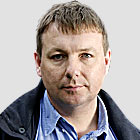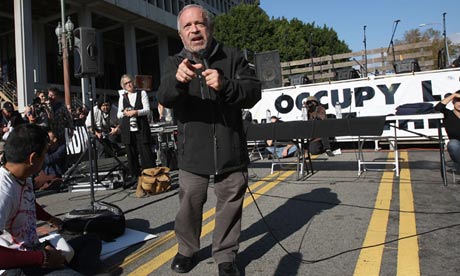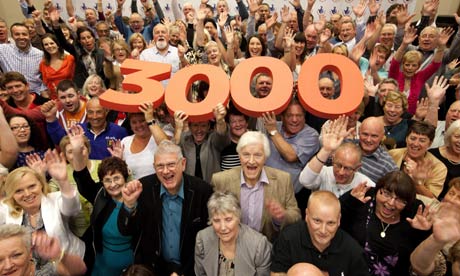The gap between the super rich and the rest of us is spiralling out of control, with Britain’s 1% grabbing more than their counterparts anywhere else in Europe

1. The top 1% no longer includes most doctors and head teachers
To be in the top 1% of earners in Britain today, a couple with no children would need a minimum income of £160,000. A single person can enter the 1% with a little less, while a couple with children would need more.
Hardly any GPs are paid enough to take their place in the top 1% any longer, despite the last decade’s huge hike in their pay; their incomes have been far outstripped by those of the financiers above them. The best-paid head teachers, too, used to be within the top paid 1% in society. They have seen pay rises higher than most teachers, but, again, they have been overtaken in the rankings by financiers, managers, accountants and lawyers. The 1% can pay their children’s university fees upfront. For the rest of us, it is debt. And, in recent years, the top doctors and teachers have become increasingly like the rest of us. There has always been a top 1%, but in the past it contained a wider range of people, including many who were respected more for the jobs they did. And the 1% is taking more and more. When I was a child, the 1% took a third of the share of national income they do today. Nowhere in Europe do they take as much as in the UK.
2. London is the home of the 1%
Per head, there are more so-called ultra-high net-worth individuals (UHNWI) in London than anywhere else on the planet. These are defined as people with $30m (£21m) or more in assets apart from their main home. The estate agents Frank Knight recently reported that 4,224 “Ultra” families were living in London, with the number expected to reach 5,000 by 2024. The attraction is not just London’s history, nightlife or its convenient time zone; it is Britain’s lax tax regime. As Pippa Malmgren, one-time economic adviser to George Bush, put it: “The crackdown on tax havens in Switzerland has removed these old options for new capital. As a result, there has been a huge influx of global capital into the UK.”
London’s wealthy elite also includes the largest concentration of Russian millionaires found outside of Moscow – at least 2,000, many of whom are also “Ultras”. It is impossible to accurately assess their wealth because so much of it is hidden. But the donations from many of them to the Conservative party suggest that they have a direct interest in maintaining the low tax – especially wealth tax – policies of that party. It is not just property that the Russians are buying.
3. The super rich can view the lower classes as subhuman
It is very hard to justify your huge wealth unless you see people beneath you as less deserving. Once the wealth gaps become very large, it is easier to get through the day if you see them as less able, less special. When earlier this month the civil society minister Brooks Newmark told people involved in charities that they should “stick to their knitting” rather than concern themselves with what might be causing the problems they were trying to remedy, he was exhibiting just such a “don’t worry your pretty little head” attitude.
At the extreme, the less fortunate may not be seen as people at all. That was the finding of a study from Princeton University in which MRI scans were taken of several university students’ active brains while they viewed images of different people. Researchers saw that photographs of homeless people and drug addicts failed to stimulate areas of the brain that usually activate whenever people think about other people, or themselves. Instead, the (mostly affluent) students reacted to the images as if they “had stumbled on a pile of trash”.
The more economic inequality there is in a country, the more people are prone to instantly size up each others’ status upon meeting. Some quickly cast their eyes down; others look over the shoulders of those they don’t think they need to respect. Social psychologists from Berkeley and Amsterdam have studied strangers in situations where one told the other of a difficult personal experience, such as a death in the family. The larger the social gap, the less compassion was shown. Such behaviour, and the acceptance of it as normal, becomes much more prevalent in those places where the 1% have taken the most.
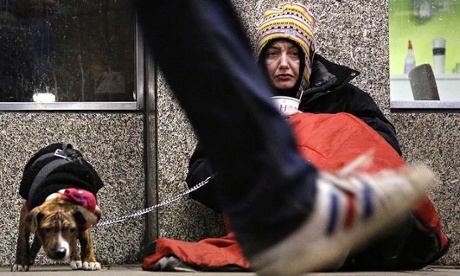
4. In the last 15 years, inequality has spiralled
If the national minimum wage had kept pace with FTSE 100 CEO salaries since 1999, it would now be £18.89 per hour instead of £6.50. However, for some reason broadcasters rarely ask CEOs about the gulf between their pay and that of the poorest staff in their organisations. The unstated implication is that the lowest-paid staff are lucky to have any job at all, and only have what they have thanks to the benevolence of the 1%, with their superior leadership skills.
If the top 1% actually created more jobs as they became wealthier, then ordinary people would be surrounded by employment opportunities in both the US and the UK. Instead, it is in Germany, where the wealthiest 1% receives in pay and bonuses half as much as their counterparts in the US, that unemployment is at a 20-year low. In countries that keep their top 1% in check, the highest earners work more effectively for the good of all, or at the very least create a little less misery.
5. Taxing more would cut down on greed
To reduce wealth inequalities, you introduce wealth taxes, as we did with inheritance tax a century ago. However, if you want to keep inequality under control, you need a high top rate of income tax. The top rate in Switzerland and Germany has not fallen for the past half century; in both countries the top 1% earners now take a slightly smaller share of total income than they did in the 1960s. In the US and the UK, the 1% have gained the most as top taxes have fallen the most.
Top taxes reduce income inequality not by raising revenue, but by deterring the greedy from asking for more money. When there is a tax rate of 60% or 70% on the slice of income above £200,000 or £250,000 a year, it makes little sense to pay employees much more than that.
By not paying a few people very high salaries, firms can save enormous amounts of money. If Barclays bank didn’t employ several hundred people on salaries of more than £1m, but on more reasonable, if still high incomes, it could employ several thousand more staff to work in local branches threatened with closure. Similarly, the BBC could make better programmes using more producers if a few celebrities at the top were paid less. It has already begun this process. A more equitable pay distribution allows far more people for the same cost, and the reward is greater productivity.
6. Maintaining inequality requires penalising the poor
The coalition government has already reduced the top rate of tax to 45%. Now it plans tougher benefit cuts for the poor. Under current financial plans, it will reward the top 1% even more in future, by cutting income taxes further. The rest of the top 20% can expect slight increases in their net income in the years up to 2016, while everyone else is impoverished. These figures are based on the Office for Budget Responsibility’s own projections. Meanwhile, the International Monetary Fund has produced statistics showing that George Osborne’s plans will cut the proportion of GDP going to the state to the lowest level in western Europe by 2015, and for the first time below that in the US.
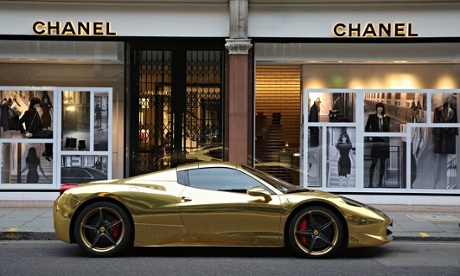
7. It is children who will suffer most from the spending cuts
The tax, benefit and spending changes now underway will hit households with children hardest. These make up a third of households, according to the children’s commissioner for England, but will suffer around two thirds of the cuts. On average, couples with no children will lose 4%, couples with children 9%, and lone parents 14% of their net income. Yet the 1% with children face no net cuts. Their loss of child benefit is more than outweighed by what they gain from tax cuts.
The 1% in the UK can afford to put money into a highly pressured education for their children. This does not necessarily make them happy. Many may prefer a normal family life to a boarding school, paid handsomely to squeeze the highest possible exam grades from them. They are expected to gain entry to some of the “best” universities and, in turn, to quickly secure a very highly paid job and do the same for their own children. They are not necessarily to be envied, but they come at a huge price, which others partly pay through austerity. One way of looking at the cost of the UK’s 1% is that it is equivalent to running 1,100 royal families.
8. Many other parts of the world are becoming more, not less, equal
In Switzerland and the Netherlands, the share of national income taken by the 1% has shrunk to historic lows. Inequalities have fallen since 1990 in Brazil and since 2000 in Sweden. Even in the UK, income inequalities since the 2008 crash have fallen back to early 1990s levels – if you strip out the very richest 1%. Only this tiny minority is still moving away from the rest. Since 2005, global economic inequalities have been falling, but again only if the wealth and income of the very richest is ignored. We are facing a fork in the road between having a majority global middle class, or most of us becoming a global service class employed to satisfy the needs of a tiny minority of super-rich individuals.
In spring this year, Oxfam revealed that some 85 of the world’s richest people now had as much wealth as the poorest half of all humanity. A few weeks later, Forbes magazine updated that estimate to just 67 people. Then, within days, they corrected that estimate on their website to 66 people, so fast was the wealth of the multi-billionaires rising in the world during early 2014. Such rapidly expanding bubbles always explode, and the larger they get, the more messily they end.
9. Concentration of wealth at the top is unsustainable …
Wealth concentration damages economies. It focuses activity within finance and other services geared towards the super rich – resorts, hotels, all manner of servant duties – and away from actually productive work. It is far better to have a mixed economy where some manufacturing still takes place near to where goods are consumed. It is also damaging to rely on industries with high numbers of very low-paid employees. If you eat out half as much but pay twice as much for the privilege, then cooks, washers-up and waiters can be paid more, as they are in Switzerland. Nowhere in Europe “employs” unpaid interns in such numbers as Britain, including in its financial industry; this does not make a vibrant market economy.
Economists based in Hamburg, Göttingen and Harvard recently studied trends since 1961 in nine high-income countries and revealed that, as those at the very top take more, overall economic growth becomes more sluggish. It is not just that the richest leave less in the pay chest for everyone else: the chest fills more slowly when the 1% take more, when employees must get by on subsistence wages, when interns must work themselves into the ground for nothing.
10. But no one knows when the tipping point will come
It is exactly a century since the income and wealth of the 1% last began to fall abruptly. Inequality peaked in the years 1912 and 1913, when the organisation of British society was epitomised by the sleeping arrangements on the Titanic.
That world was changed by external events: the first world war, the 1916 Easter uprising, the Russian revolution of 1917, and the influenza pandemic of 1918 that killed 50 million people worldwide. Taxes rose rapidly. The job was finished by unions, politicians and suffragettes, the greed of the 1920s bankers and the crash of 1929. The net income of the 1% was cut in half by 1939.
Today there are not enough people to buy property in London at prices inflated by the greed of the 1%. Firms cannot sell enough to justify the largesse offered to a few at the top, and banks cannot legally or morally make enough profit to pay over 2,000 bankers more than £1m a year. Roughly half the voters of Scotland haven’t expressed their wish to leave the union in poll after poll because they see London and its inequalities as stable or sustainable.
We can see the rising dissent and anger and the changing of attitudes towards the rich, but not the precise event that will come to be labelled as the turning point, just as we could not a century ago. But it is coming. We may even have passed it. Note how pay at the top of the BBC has fallen, and that no banker today is paid what Bob Diamond received a few years ago. The language and moral sentiment is changing. By being angry and disgusted with the current extent of inequality, we make it unacceptable, and its defenders become pariahs. Gross economic inequality is as vile as racism, misogyny and hatred of the disabled; as damaging in effect; and as dependent on a small group of supporters who believe that just a few should have more and more and more, because they’re worth it.
